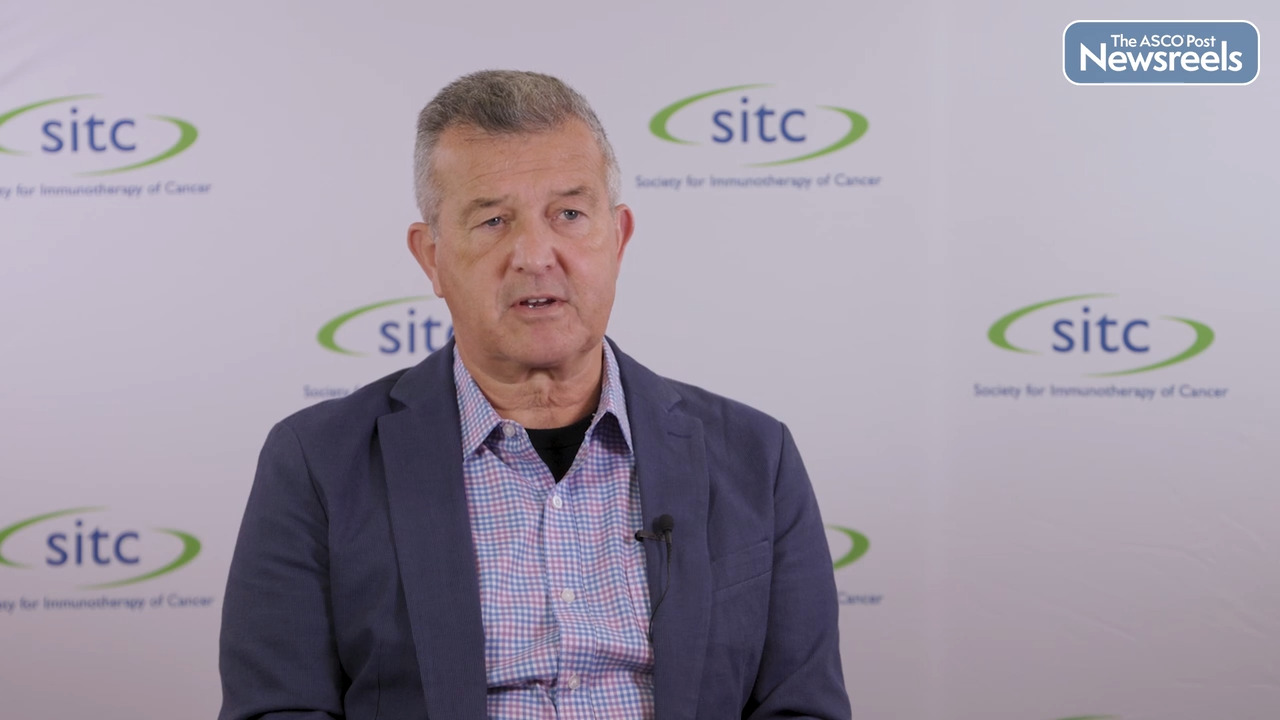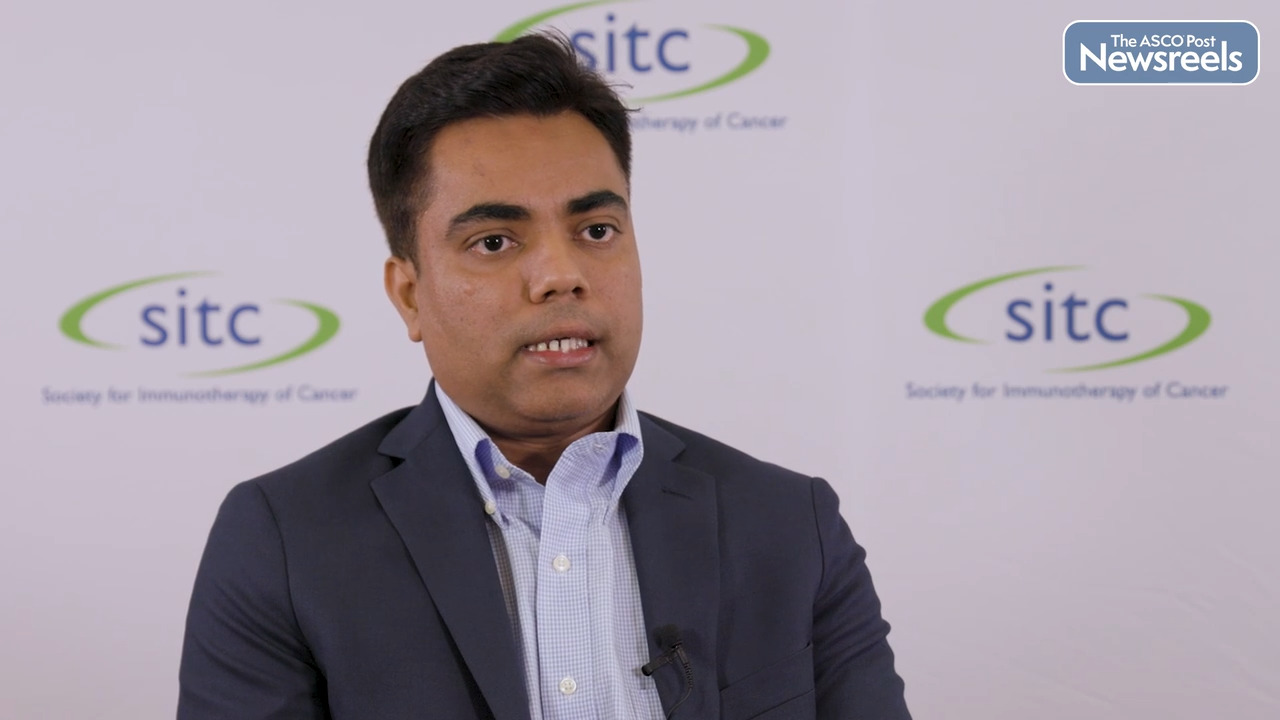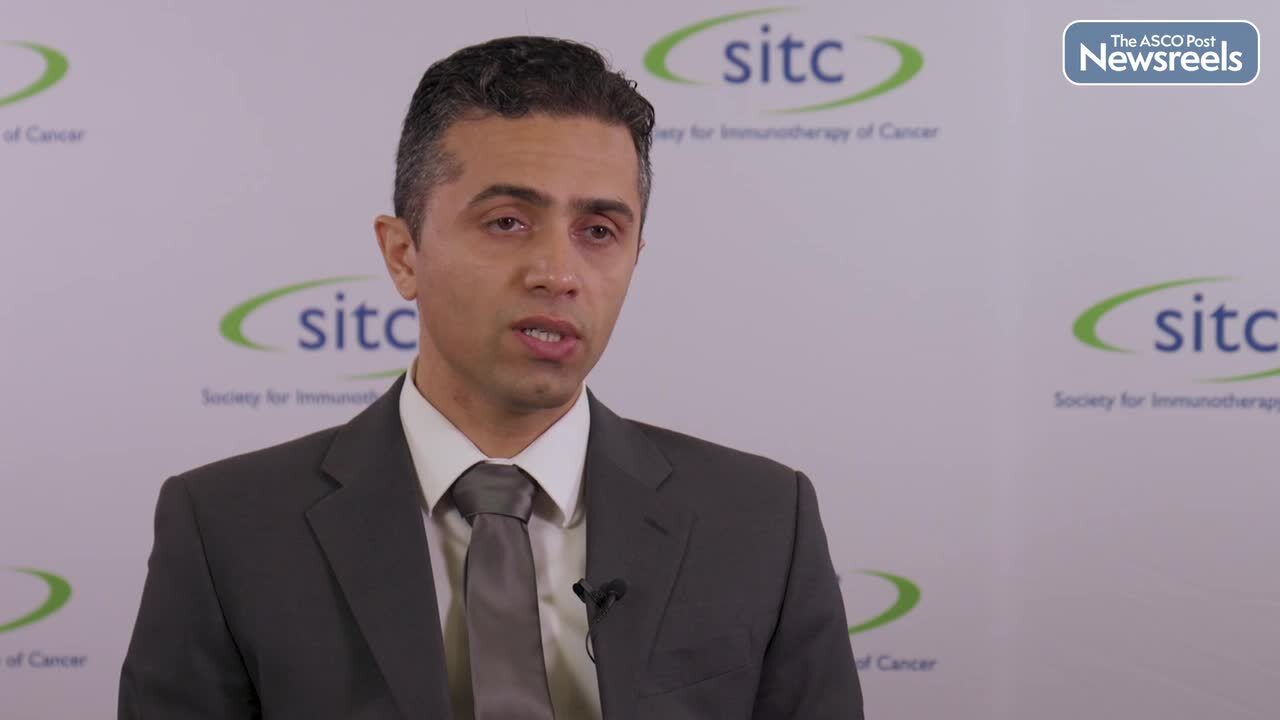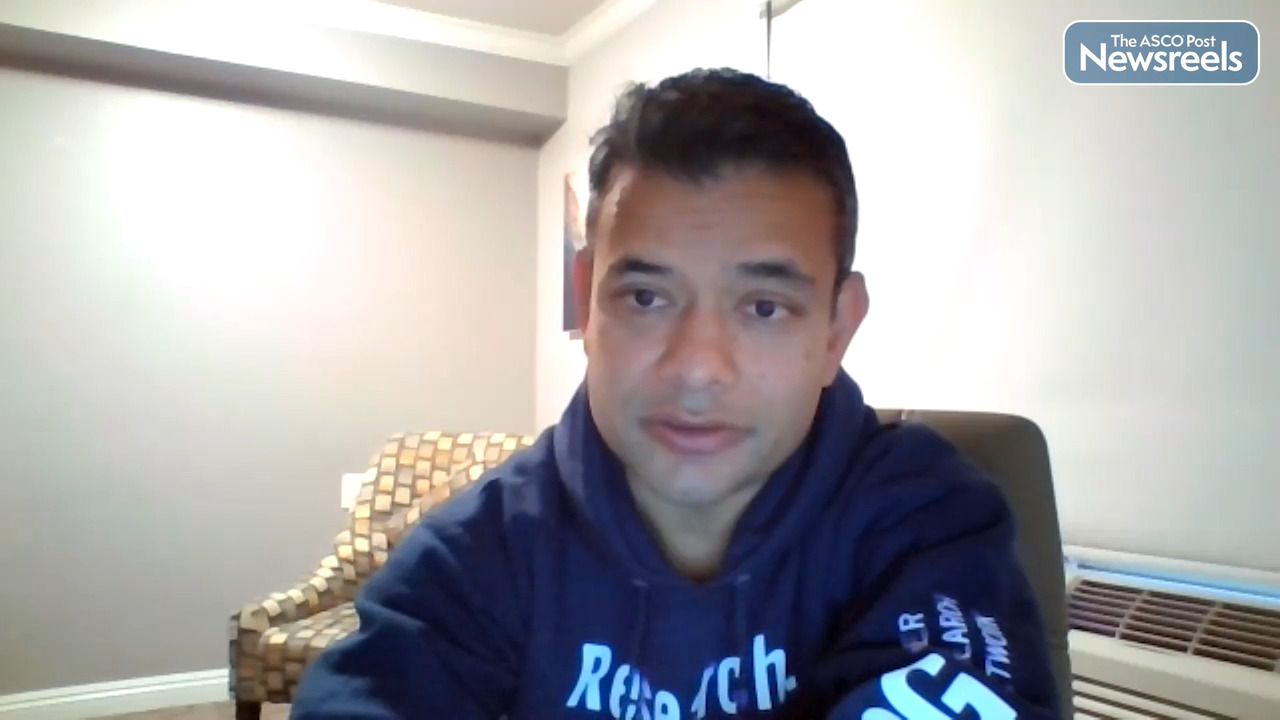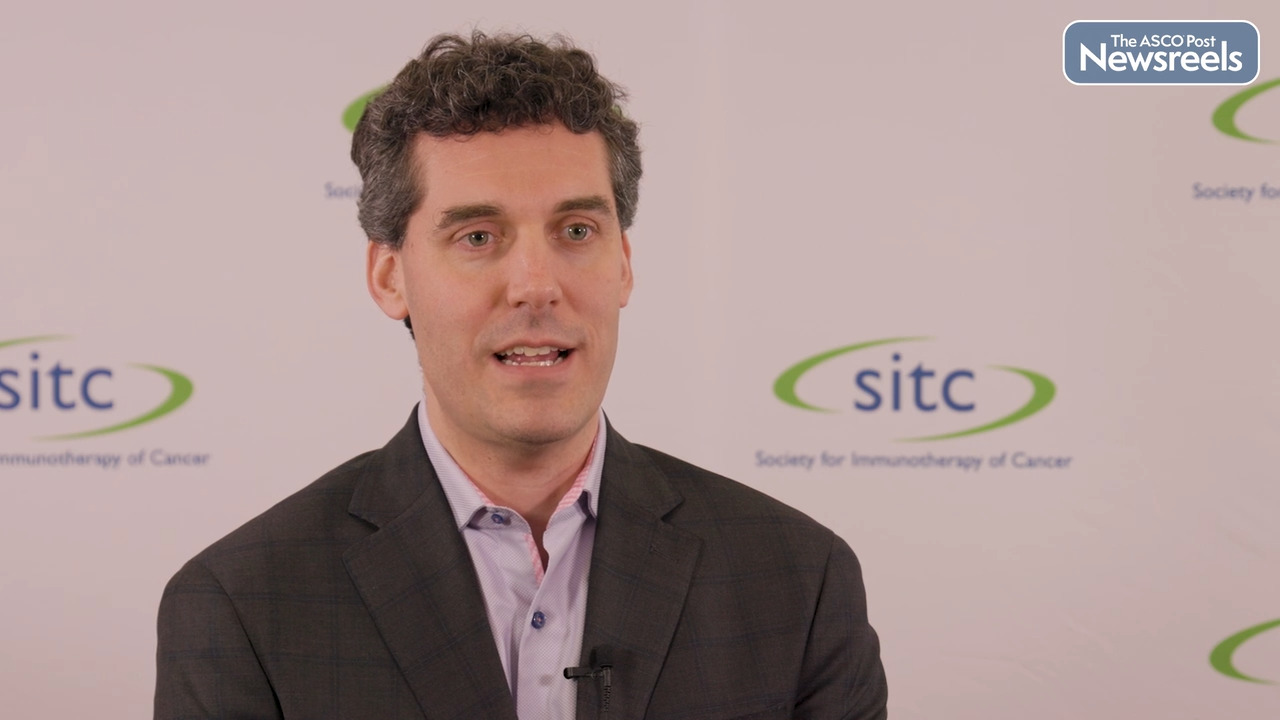Transcript
Disclaimer: This video transcript has not been proofread or edited and may contain errors.
Dr. Zarif, thank you for joining us today. It's exciting to have you here. Really want to know about your study that you presented at SITC 2022 about people living with HIV and metastatic non-small cell lung cancer treated with checkpoint inhibitors. For the sake of our audience, can you tell us what is the background for this story and why you initiated this project?
Thank you, Rafeh, for having me here. I think this study was essentially looking at people living with HIV and cancer. We know from data from clinical trials that immune checkpoint inhibitors are active and safe in people living with HIV and non-small cell lung cancer. However, these trials were limited by small sample sizes, and what we really wanted to know here is how does the safety and the clinical outcomes of immune checkpoint inhibitors compare between people living with HIV and people living without HIV? We started with a matched cohort analysis from the CATCH-IT Consortium, which is cancer therapy using immune checkpoint inhibitors for people living with HIV international. It's a consortium that spans 33 institutions across the globe from the US, Europe, and Australia. We really reached out to every institution and we asked for a matched cohort, meaning that we looked at people living with HIV and people living without HIV and we matched for one person with HIV two people living without HIV. In both groups they had metastatic non-small cell lung cancer and have received immune checkpoint inhibitors. That's basically our study.
Definitely a very interesting way to conduct a study in a patient population that is generally underrepresented in clinical trials. Could you tell us how did you choose these institutions and how did you connect with so many colleagues to get this unique data set together?
Absolutely. We reached out to investigators who are interested in clinical outcomes of immunotherapy, and we leveraged our network of collaborators and we started reaching out here and there, and then we had our consortium built.
Excellent. Based on the findings, could you give us a brief overview of the main results in this study and what you found and what kind of implications those findings have?
Absolutely. What we did is that, as I mentioned, we matched people living with HIV to people living without HIV and all had metastatic non-small cell lung cancer and received immune checkpoint inhibitor. We matched for [inaudible 00:02:40] criteria. We looked at age, sex, class of immune checkpoint inhibitor, the use of chemotherapy, and finally, the number of prior lines of therapy, because we wanted to have a fair comparison. Here we then looked at the overall survival, progression-free survival and overall response rate and the toxicity.
In brief, I think we didn't find major differences in overall survival or progression free survival or the overall response rate. For example, at two years, the overall survival rate was 40%, almost 40%, in both cohorts. Same for progression free survival. It was similar between the cohorts at 18%. As for overall response rate, we had a 28% response rate in the people living the HIV cohort versus 37% in the people living that HIV cohort, with a P-value of 0.25 that was not statistically significant in difference. Then finally, looking at the safety outcomes, people living with HIV had 19% incidence of immune related adverse events versus 24% among people living without HIV. That's for any grade related adverse events. As for grade three to four adverse events, which we expect to impact therapy, it was equal between the two groups at 11%.
What I would like to highlight is that although we matched for the cohort for these key five variables that I mentioned before, we found that we were not able to match for the racial makeup of the cohorts, which tells a lot about the epidemiology of HIV and cancer and which population is affected. In fact, more black patients were represented in the people living with HIV cohort, but again, the bigger picture was that there was no difference in clinical outcomes or safety profiles.
Excellent. This definitely is a landmark study in its own way, although this is not a clinical trial. From a futuristic standpoint, what are the implications of these findings and what are the next steps that you're going to take as part of this CATCH-IT Consortium?
Yeah, that's a great question. I think the next step is to look at different cancer types. We looked at non-small cell lung cancer here because it was by far the most represented cancer type in our cohort of more than 400 people living with HIV who have received an immune checkpoint inhibitor. Next step is we'll obviously be looking at these different cancer types, like hepatocellular carcinoma or lymphoma or other cancer types. We're also interested in performing a tissue based analysis to look at the differences in the tumor microenvironment that might have differences in outcomes for these patients.
Those are definitely excellent subsequent steps, and congratulations to you and your entire team who contributed to this study, and of course the patients who made this possible. Thank you for being with us today.
Thank you.
